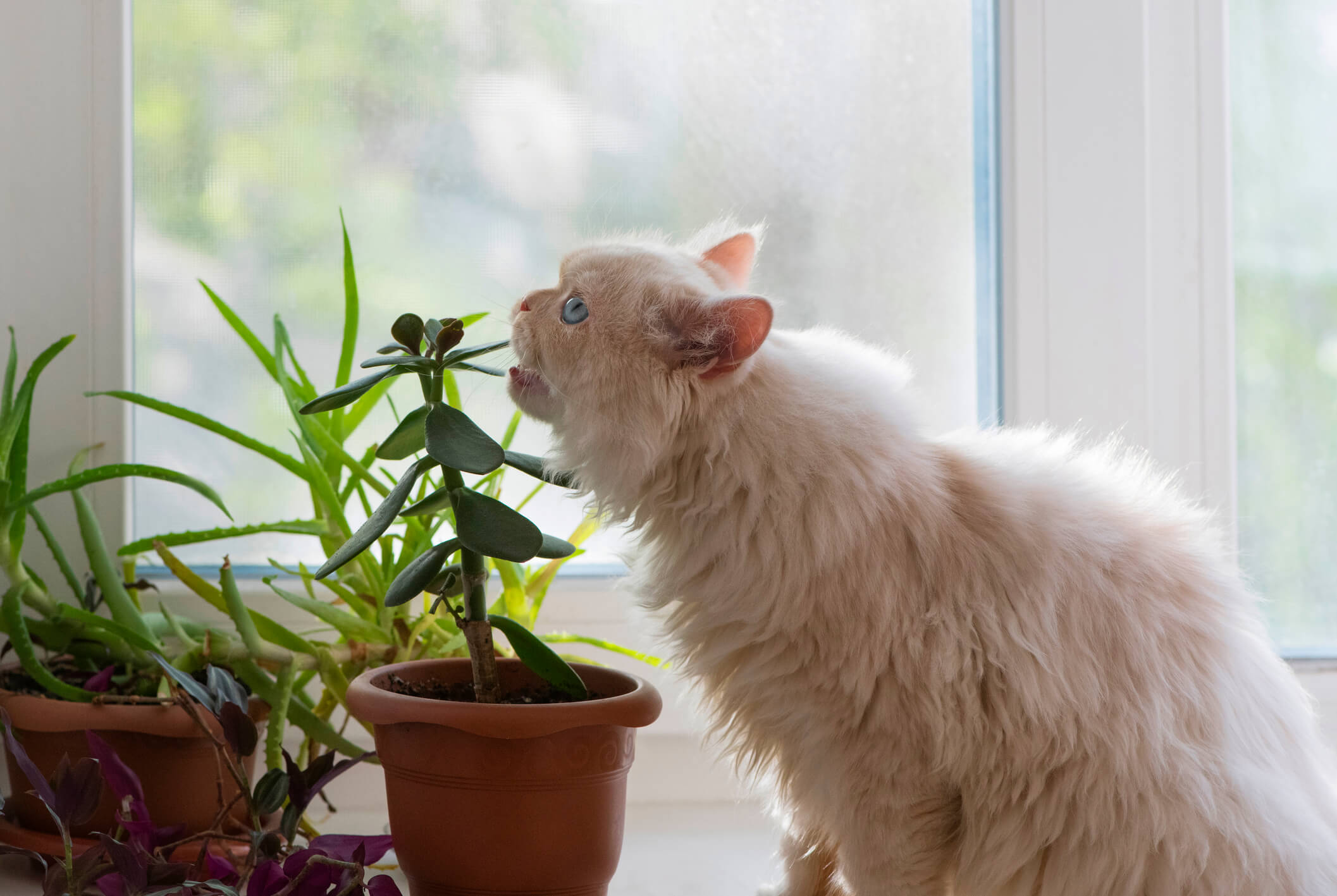
These Household Items Can Be Toxic to Cats!
Pet parents know there are some things that cats shouldn’t eat. What they might not realize is that many more toxins than they know about are present in their cats’ environment. Food, medication, house plants and cleaning products can be dangerous to cats, but our feline friends could access them at any moment.
To prevent poisoning in cats, pet parents should learn about toxic substances and the symptoms associated with them. When you’re more aware of your cat’s surroundings, you’re better equipped to seek medical help if poisoning does occur.
Here are the most common household toxins to watch out for in your home.
Ingredients in human food
Cats are very curious creatures. If they find food, they might want to taste it. A cat may steal bits of food from plates and open containers while their owner is in another room. Some cats have also been known to rummage through trash bins and fish out discarded table scraps. In other cases, a pet parent or guest may inadvertently offer food that’s actually poisonous to cats.
Cats can develop any number of symptoms from eating toxic food. The symptoms range from mild to life-threatening, and they depend on which toxin the cat ingested. For example, cats that eat chocolate may experience vomiting, diarrhea, panting or a rapid heart rate. Garlic often causes anemia in cats, which is characterized by lethargy, fast breathing and yellow gums. Any toxic food can trigger a range of respiratory, neurological and gastrointestinal problems, as well.
The following foods are highly toxic to cats:
- Chocolate
- Garlic
- Onions
- Leeks
- Chives
- Grapes
- Unripe tomatoes
- Raw potatoes
- Alcohol
Indoor and outdoor house plants
House plants (both indoor and outdoor) also pose a risk to your cat’s health. Plants are a common cause of poisoning because cats can come into contact with them while the owners aren’t watching. Cats may nibble the flowers, stems or leaves of potted plants sitting on low tables or shelves. Indoor-outdoor cats may roam the gardens and come across plant species that are highly poisonous.
Much like with human food, the symptoms of plant poisoning depend on the species that was ingested. For instance, lilies can cause drooling, lethargy, loss of appetite, digestive upset and kidney failure. Generally speaking, many plant species cause inflammation in the skin, throat and mouth. The cat may also experience coughing, sneezing or a red, itchy rash.
Here are some common plants to avoid:
- Lily
- Amaryllis
- Aloe vera
- Daffodil
- Tulip
- Hyacinth
- Pothos
- Poinsettia

Pet and human medications
Many cases of poisoning stem from pet and human medications. Owners might accidentally leave open pill bottles on the counter. Some owners will administer human pain killers and probiotic supplements in the hopes that they’ll work on their cats. Humans and cats metabolize substances differently, which means the ingredient levels in human medications are way too high for cats. Even medication designed for cats can lead to poisoning if they’re given in the wrong dose.
Drug poisoning usually causes gastrointestinal symptoms, which include vomiting, diarrhea and general discomfort in the abdominal area. Some cats may also develop a fever, lethargy or a rapid heartbeat. Excessive vomiting and diarrhea often lead to dehydration, a serious side effect of drug poisoning that can quickly turn fatal.
Keep these medications in a safe location away from your cat:
- Aspirin
- Acetaminophen
- Ibuprofen
- Antidepressants
- Melatonin
- Supplements
- Flea and tick treatments
Household cleaners and yard products
Household products contain dangerous chemicals that are highly poisonous to cats. They could inhale airborne particles from air fresheners, cleaning sprays or essential oil diffusers. Cats that venture outside could come into contact with fertilizer, pesticides or antifreeze, which they ingest by grooming their fur.
These products can lead to many common signs of poisoning—vomiting, diarrhea, lethargy, fever, dehydration and rapid heartbeat, among others. Some essential oils may cause additional symptoms depending on which plant species they’re derived from. For instance, eucalyptus oil may cause drooling, seizures and confusion, while peppermint oil is linked to liver failure and damage to the nervous system.
Make sure your cat doesn’t come into contact with any of the following products:
- Essential oils
- Fertilizers
- Antifreeze
- Cleaning sprays
- Laundry detergent
- Pesticides
- Rodenticides
Many toxins exist in your cat’s environment. You can keep your cat safe by recognizing which substances are poisonous and placing them in hard-to-reach locations. Even still, there’s always a chance poisoning could occur, so it’s important to know the symptoms and report them to your vet right away. Acting fast can save your cat’s life!


